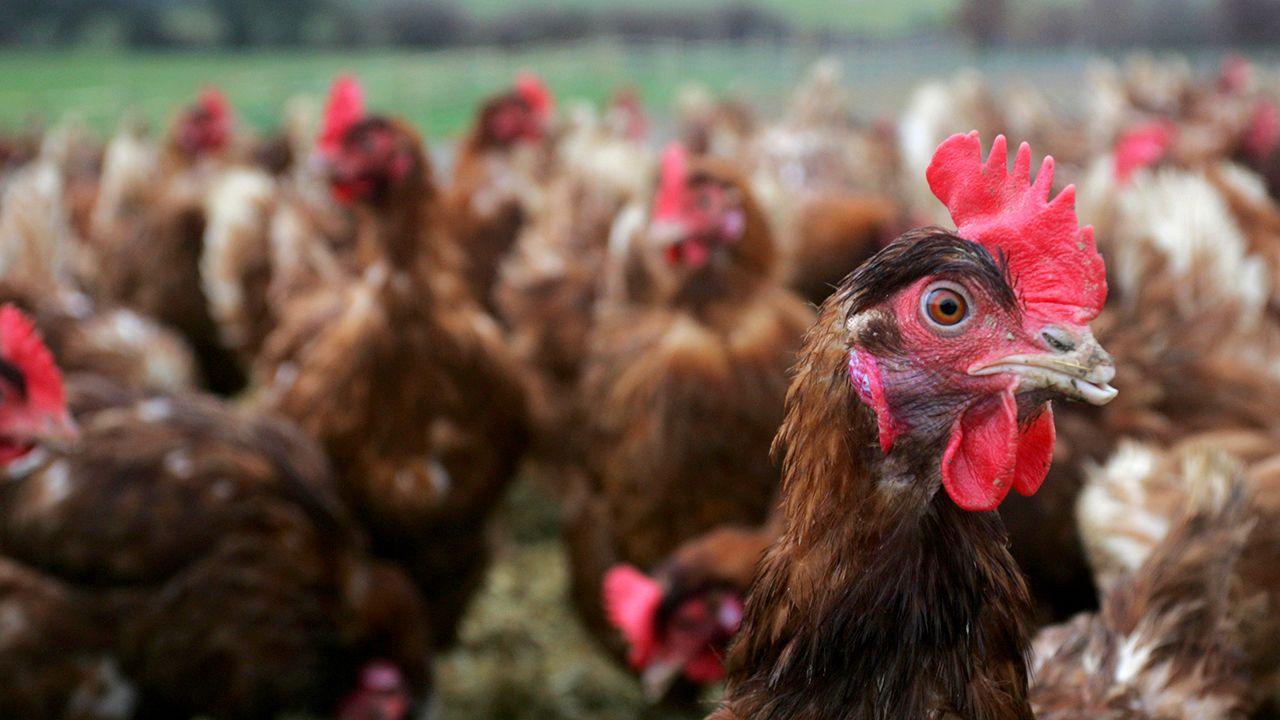What to do to stop the spread of bird flu
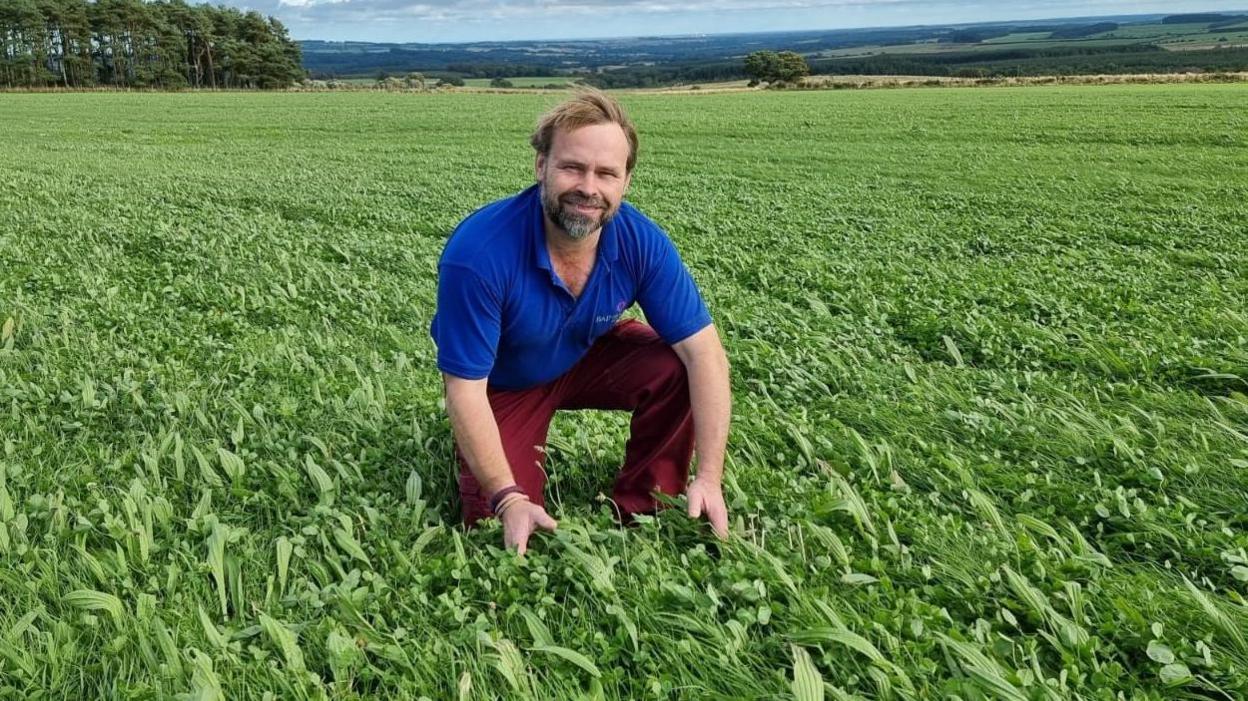
Farmer Simon Bainbridge says strict rules need to be enforced all year round to protect birds
- Published
Disinfecting feet, frequent hand washing and changing footwear often are just some of the measures farmers take to try and halt the spread of bird flu.
Cases of the virus have been found in Burnopfield and Lazonby, forcing the Animal and Plant Health Agency to set up surveillance zones in Tyne and Wear, Cumbria and County Durham.
Measures are particularly important for farmers and bird keepers as outbreaks can result in entire flocks being destroyed, either by the disease or as a protection measure.
But those living near where cases have been detected can also take steps to help limit the spread of the virus.
How do farmers prevent bird flu?
Simon Bainbridge has been raising poultry at his farm in Morpeth, Northumberland, since 2017.
He says he is not concerned about the recent new cases because poultry farmers already carry out stringent measures to protect their birds all year round.
"We have a belts and braces policy that is just part of the norm of what we do," he says.
"We do everything possible to keep our birds safe."
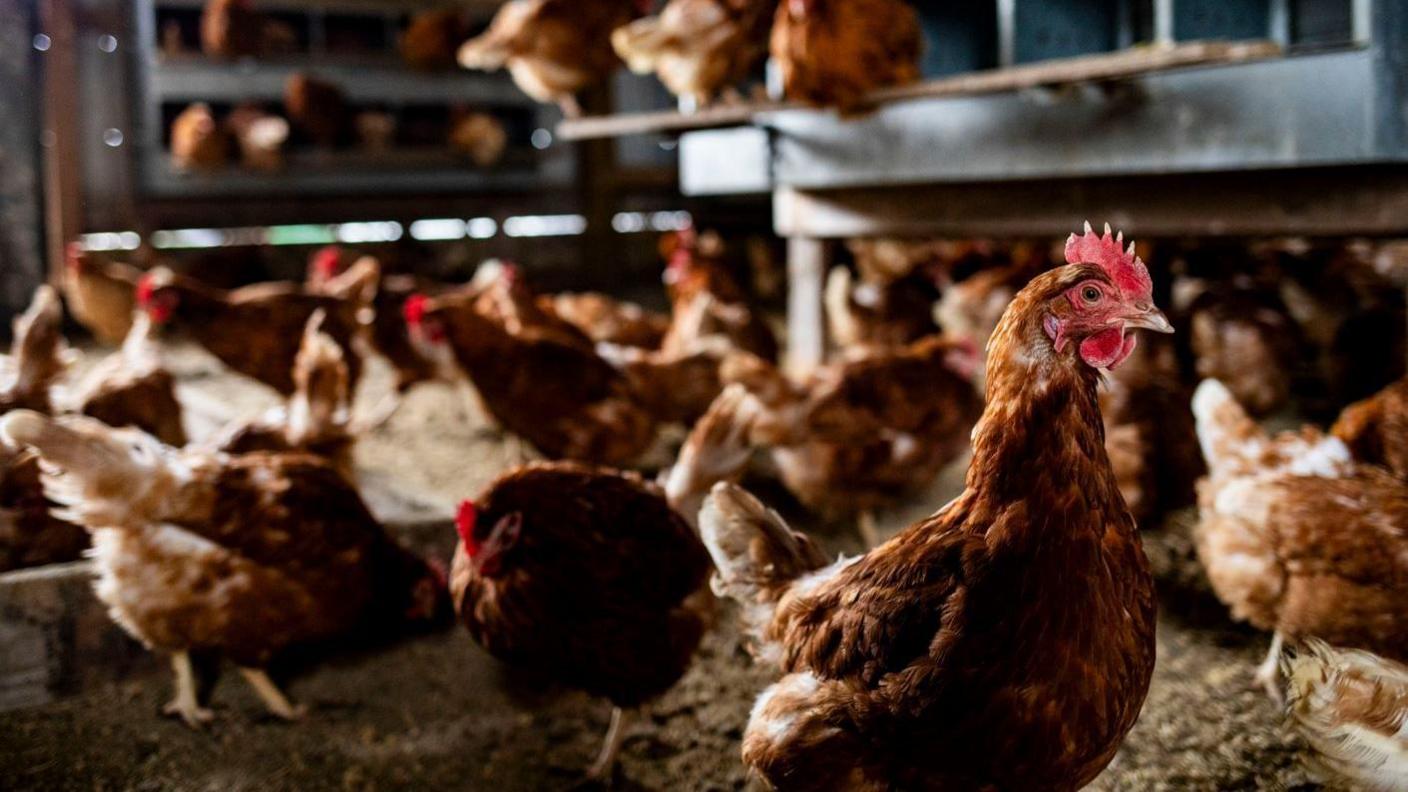
Advice to halt the spread of bird flu includes staying away from sick or dead birds
Bainbridge Farm keeps about 24,000 chickens across eight houses.
Anyone who comes into contact with the birds is required to have three changes of footwear and must disinfect their feet at certain points within the buildings.
Staff are also required to wear clean clothes before changing into boiler suits.
Hand washing is also compulsory and any vehicles that enter the sites must also have its wheels and mudguards disinfected.
Mr Bainbridge said most poultry farmers have similar security all year round.
How do chicken owners keep their birds safe?
Mandy Price keeps hens in her garden in Tynemouth.
She currently has a flock of six hens made up of rescues, abandoned birds and some bought from breeders - which she calls her "posh birds".
Her area has been advised to take precautions, which involves wearing clean footwear inside chicken runs and quarantining birds before moving them between flocks.
However, the situation could escalate into a full lockdown.
"It means your hens must be kept undercover so no wild birds can have access and you must have them in a run with a roof," she says.
People who enter the runs must also disinfect their feet.
But she says an outbreak of the virus could have other wider impacts, such as rescue centres refusing to take hens and vets refusing to treat sick birds over fears they could be contaminated.
"In previous years we've had a full lockdown and, yeah, it is worrying but I do adhere to the precautions," she says.
"There are plenty of dead birds if you walk along the beach - it clearly is a serious threat."
How can you stop bird flu spreading?
Farmers and bird keepers are not the only ones who can help stop the spread and members of the public are also being urged to be vigilant.
As wild birds spread avian influenza those spending time outdoors, including walking in woodlands, need to be aware of what they should and should not do.
The Animal and Plant Health Agency is urging walkers to keep to footpaths and not to feed waterfowl, which are particularly susceptible to the disease.
Dogwalkers have been told to keep their pets on leads in or near where cases have been detected.
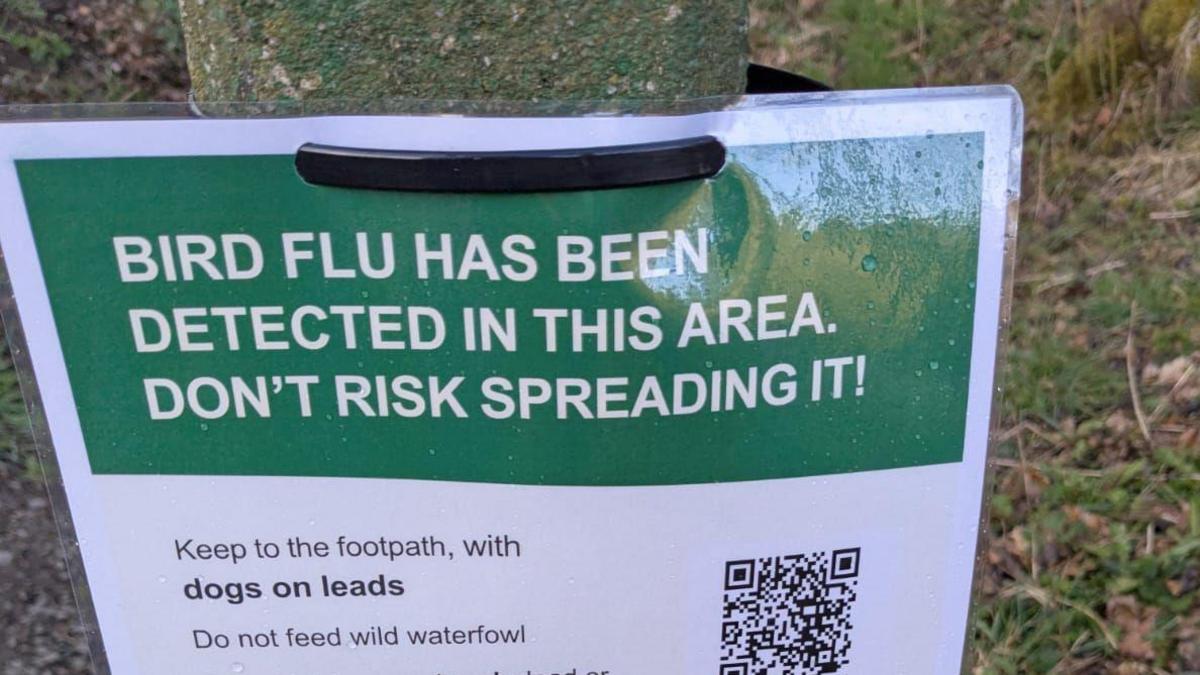
Signs have been placed in areas near detected cases with advice on how to stop spreading the virus
Similarly, anyone who comes across wild bird feathers or surfaces contaminated with wild bird droppings are advised not to touch them.
If a dead wild bird is found it should not be touched and should be reported to the Department for Environment, Food & Rural Affairs (Defra)
More information on how to stop the spread of bird flu can be found on The Department for Environment, Food & Rural Affairs' (Defra) website, external.
Follow BBC North East on X, external and Facebook, external and BBC Cumbria on X, external and Facebook, external and both on Nextdoor and Instagram, external.
Get in touch
Do you have a story suggestion for BBC North East & Cumbria?
Related topics
- Published28 March
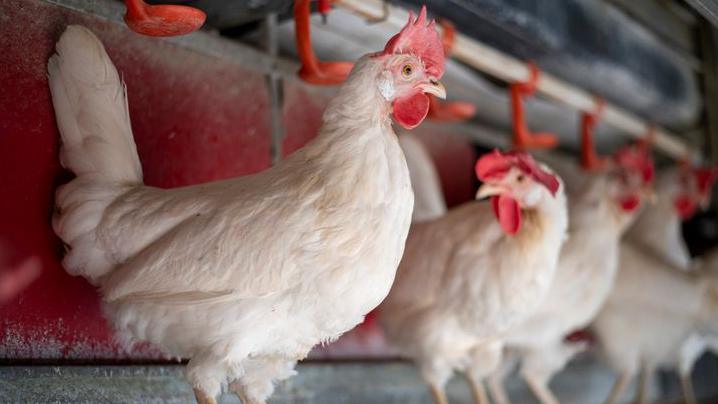
- Published24 March
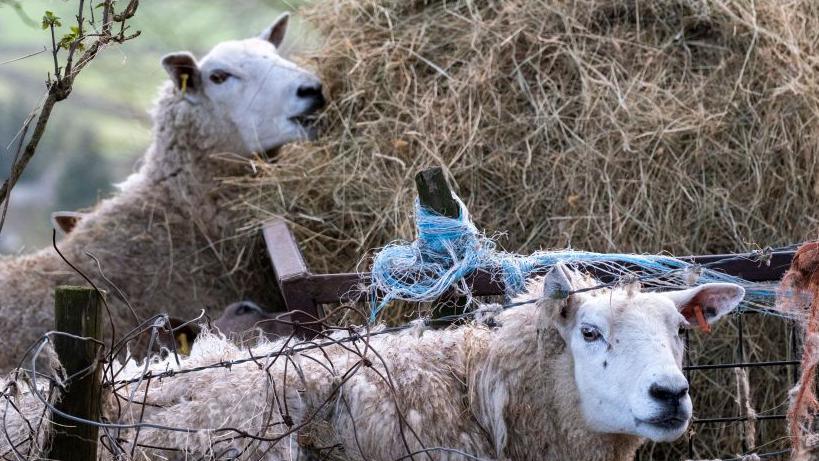
- Published12 February
